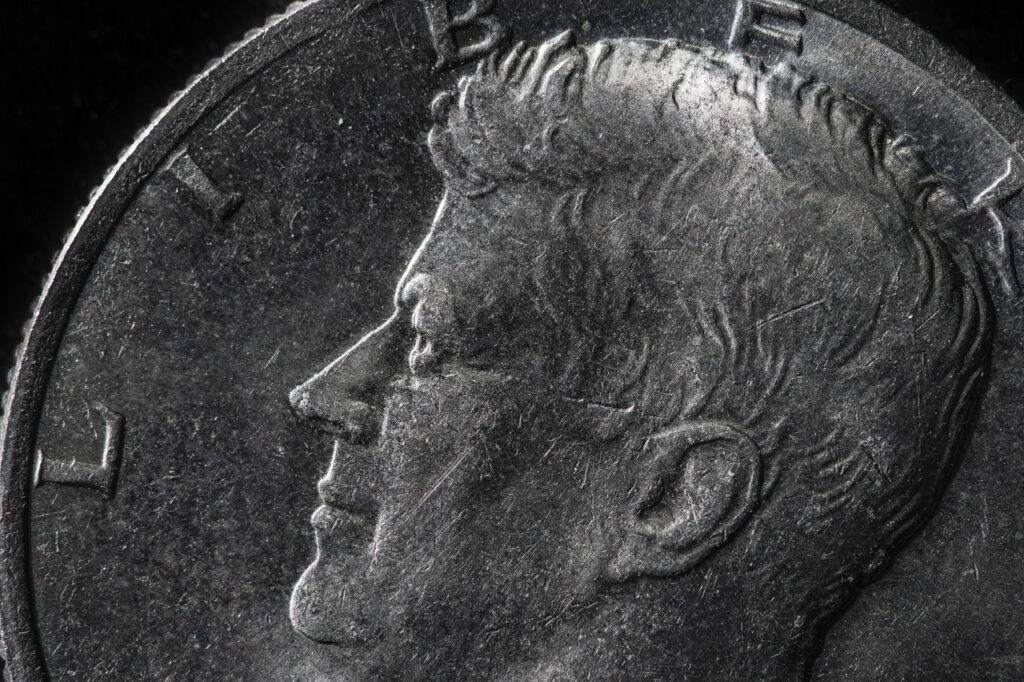Born on this day, 29th May 1917, John Fitzgerald Kennedy was president for 1036 days, has had over 40,000 books written about him and is the president that most Americans would like to see immortalised on Mount Rushmore. Famously charming, we look at JFK’s soft skills style secrets.
JFK’s childhood shows little sign of the president he was to become: known as Jack throughout his rather sickly childhood, one of nine children in a competitive family headed by his Irish Catholic father and of a family whose eight great grandparents all migrated to Boston during the potato famine.
Jack reputedly didn’t try as hard as he could have done at school: it was only after his elder brother Joe’s tragic death in WW2 that the option of politics was mooted for Jack. Perhaps, Jack had harboured quiet aspirations in this area already, having written a thesis whilst at Harvard on ‘why Britain was unprepared for war with Germany’.
Whether through desire or familial duty, Jack stepped up and took his WW2 Lieutenant’s Marine corps medal for bravery and leadership to congress with him becoming John F. Kennedy.
Fourteen years later, at the age of 43, JFK became the youngest man and the first Catholic to become President of America.
Of the people
Whilst it could be argued that JFK enjoyed a privileged background, he took care to emphasise the aspects with which others could identify.
In a speech before he came to office, JFK said: “I have no wish to be known as a narrowly partisan President, or as a private-interest President, I want to be President of all the people."
To this end, JFK would talk freely about his Irish heritage, and his family’s history as immigrants to America, something that many Americans could identify with, saying:
“This nation was founded by men of many nations and backgrounds…on the principle that all men are created equal”.
It is extremely difficult to feel an affinity to someone that we perceive we have nothing in common with, and even more so if the person has little interest in finding points of commonality. There will almost certainly be some, if you are interested enough to find them.
At the age of 43, JFK became the youngest man and the first Catholic to become President of America.
Humour
In almost all of JFK’s 1960 pre-election speeches he utilised humour – why?
One of the most difficult issues for a person in a position of authority to overcome is that of power distance, the distance created by the superior-to -subordinate relationship.
In one such speech, JFK talked of the support of his sisters on the campaign trail, joking that when his younger sister (by around seven years) Patricia had been asked if JFK was her kid brother, she knew it was time for the campaign to come to an end. When used at the right time, to build rapport, to diffuse a difficult situation or to develop relationships, humour can disarm, relax and charm.
An accessible image
Sitting in a gilded office, hidden from view is never going to win votes. And this is as true whether you are on the campaign trail or working up the corporate ladder.
In a pre-election speech, JFK said: “My wife, of course, would have been campaigning with me, but we are going to have a child in about three weeks, so she is home…but my three sisters have been campaigning for me all fall."
Later, in his inaugural speech, he said: “So now my wife and I prepare for a new administration and for a new baby”.
Little snippets that help to paint a picture, an appealing, wholesome image that others buy into. If you’re not prepared to paint the picture, remember that others will be happy to do it for you, and you may not be as keen on the results!
It is extremely difficult to feel an affinity to someone that we perceive we have nothing in common with.
Polite
In a pre-election speech, JFK said: “I do want you to know that I am very grateful for all of you to come out. It is not a good time to hold a rally at 2.15 in the afternoon. It is cold, rainy, and there are many other things you would want to do. But I am grateful to you for being able to stand and say hello”.
So many of us forget how powerful a heartfelt thank you is, an indication of an awareness of the struggles that another has contended with and an appreciation of their hard work.
It is said that JFK wanted his epitaph to be ‘he kept the peace’, and whilst JFK averted a nuclear war it could be considered that his choice of words speaks more of his approach to life.
A calm, considered approach that worked with others rather than against them, that accentuated the similarities rather than the differences, and that always chose positivity over negativity.
Tragically, JFK’s life was taken early when Lee Harvey Oswald fired a fatal shot in Dallas, but JFK will always be remembered in the words of his wife Jackie as “that elusive, unforgettable man”.
Born on this day, 29th May 1917, John Fitzgerald Kennedy was president for 1036 days, has had over 40,000 books written about him and is the president that most Americans would like to see immortalised on Mount Rushmore. Famously charming, we look at JFK’s soft skills style secrets.
JFK’s childhood shows little sign of the president he was to become: known as Jack throughout his rather sickly childhood, one of nine children in a competitive family headed by his Irish Catholic father and of a family whose eight great grandparents all migrated to Boston during the potato famine.
Jack reputedly didn’t try as hard as he could have done at school: it was only after his elder brother Joe’s tragic death in WW2 that the option of politics was mooted for Jack. Perhaps, Jack had harboured quiet aspirations in this area already, having written a thesis whilst at Harvard on ‘why Britain was unprepared for war with Germany’.
Whether through desire or familial duty, Jack stepped up and took his WW2 Lieutenant’s Marine corps medal for bravery and leadership to congress with him becoming John F. Kennedy.
Fourteen years later, at the age of 43, JFK became the youngest man and the first Catholic to become President of America.
Of the people
Whilst it could be argued that JFK enjoyed a privileged background, he took care to emphasise the aspects with which others could identify.
In a speech before he came to office, JFK said: “I have no wish to be known as a narrowly partisan President, or as a private-interest President, I want to be President of all the people."
To this end, JFK would talk freely about his Irish heritage, and his family’s history as immigrants to America, something that many Americans could identify with, saying:
“This nation was founded by men of many nations and backgrounds…on the principle that all men are created equal”.
It is extremely difficult to feel an affinity to someone that we perceive we have nothing in common with, and even more so if the person has little interest in finding points of commonality. There will almost certainly be some, if you are interested enough to find them.
At the age of 43, JFK became the youngest man and the first Catholic to become President of America.
Humour
In almost all of JFK’s 1960 pre-election speeches he utilised humour - why?
One of the most difficult issues for a person in a position of authority to overcome is that of power distance, the distance created by the superior-to -subordinate relationship.
In one such speech, JFK talked of the support of his sisters on the campaign trail, joking that when his younger sister (by around seven years) Patricia had been asked if JFK was her kid brother, she knew it was time for the campaign to come to an end. When used at the right time, to build rapport, to diffuse a difficult situation or to develop relationships, humour can disarm, relax and charm.
An accessible image
Sitting in a gilded office, hidden from view is never going to win votes. And this is as true whether you are on the campaign trail or working up the corporate ladder.
In a pre-election speech, JFK said: “My wife, of course, would have been campaigning with me, but we are going to have a child in about three weeks, so she is home…but my three sisters have been campaigning for me all fall."
Later, in his inaugural speech, he said: “So now my wife and I prepare for a new administration and for a new baby”.
Little snippets that help to paint a picture, an appealing, wholesome image that others buy into. If you’re not prepared to paint the picture, remember that others will be happy to do it for you, and you may not be as keen on the results!
It is extremely difficult to feel an affinity to someone that we perceive we have nothing in common with.
Polite
In a pre-election speech, JFK said: “I do want you to know that I am very grateful for all of you to come out. It is not a good time to hold a rally at 2.15 in the afternoon. It is cold, rainy, and there are many other things you would want to do. But I am grateful to you for being able to stand and say hello”.
So many of us forget how powerful a heartfelt thank you is, an indication of an awareness of the struggles that another has contended with and an appreciation of their hard work.
It is said that JFK wanted his epitaph to be ‘he kept the peace’, and whilst JFK averted a nuclear war it could be considered that his choice of words speaks more of his approach to life.
A calm, considered approach that worked with others rather than against them, that accentuated the similarities rather than the differences, and that always chose positivity over negativity.
Tragically, JFK’s life was taken early when Lee Harvey Oswald fired a fatal shot in Dallas, but JFK will always be remembered in the words of his wife Jackie as “that elusive, unforgettable man”.





